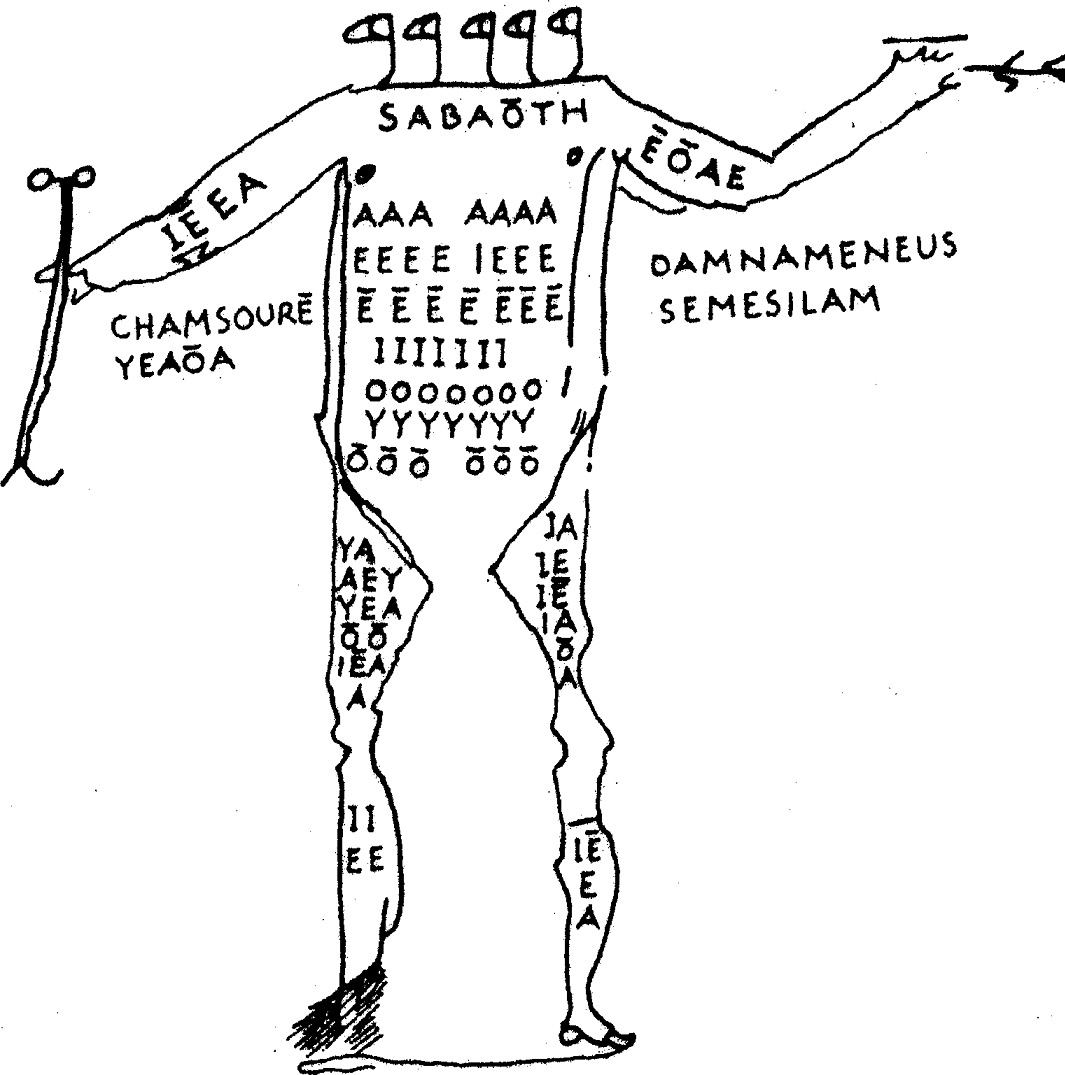- Joined
- Sep 1, 2023
- Messages
- 589
- Reaction score
- 1,535
- Awards
- 15
Okay maybe this is obvious, but I only just thought of it. The PGM and some other places bloody love vowels. Like "calling the sevenths" where you vibrate a vowel to each quarter and those paragraph long strings of vowels etc, and this guy:

He loves those vowels!
Anyway I realised that where the written language has no vowels (eg Coptic, ye olde Hebrew & Arabic), then the difference between dead words on a sheet of papyrus and living words sung in ritual or spoken to a loved one, is the vowels have been inserted. So vowels are what bring the dead thing to life. They're put in the middle of consonant-only words and they're the breathiest part - it is almost is like breathing life into the word.
Or since speech comes before writing, written language is like the living word has been skinned and gutted, or had its breath of life sucked out of it so it can be pinned on the page like a dead butterfly.
I'm using melodramatic language to try and get into that headspace, but I can see how someone could view it that way, especially if literacy was more of a specialised art than a daily requirement. In that model, no wonder vowels would seem to have innate magical power

He loves those vowels!
Anyway I realised that where the written language has no vowels (eg Coptic, ye olde Hebrew & Arabic), then the difference between dead words on a sheet of papyrus and living words sung in ritual or spoken to a loved one, is the vowels have been inserted. So vowels are what bring the dead thing to life. They're put in the middle of consonant-only words and they're the breathiest part - it is almost is like breathing life into the word.
Or since speech comes before writing, written language is like the living word has been skinned and gutted, or had its breath of life sucked out of it so it can be pinned on the page like a dead butterfly.
I'm using melodramatic language to try and get into that headspace, but I can see how someone could view it that way, especially if literacy was more of a specialised art than a daily requirement. In that model, no wonder vowels would seem to have innate magical power
